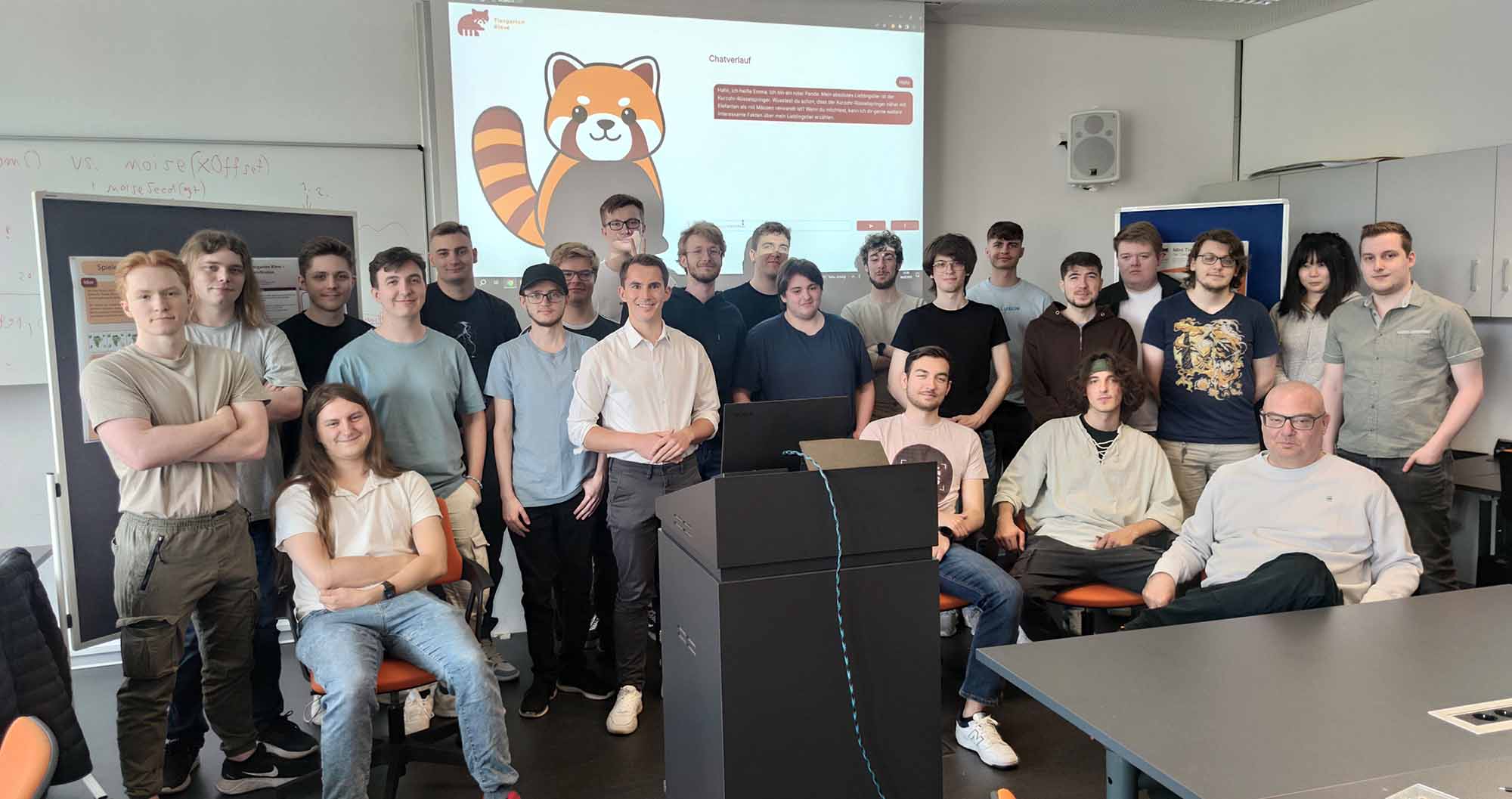The zoo experience of tomorrow
Students of the Faculty of Communication and Environment develop digital applications for an exciting visit to the zoo
An app for better orientation, a Red Panda as a chat GBT or an audio guide that uses GPS coordinates to play texts about the animals – supervised by Professor Ido Iurgel, students from the Faculty of Communication and Environment have impressively demonstrated how digital applications can make a zoo visit even more exciting.

"There are many ways in which the visit to a zoo like Tiergarten Kleve can be made more enriching through digital communication technologies, artificial intelligence, and gamification," says Professor Iurgel from Rhine-Waal University. "Thanks to the cooperation with Tiergarten Kleve, our students were able to develop their own ideas for digitizing the zoo visit and even implement them in a first prototype."
Digitalisation is by no means to be seen as competition to the actual visit to the zoo, but rather to make it more varied and informative, as zoo director Martin Polotzek reports: "The four main tasks of a modern zoo are education, research, species protection and recreation, which can be strengthened even further with digital communication technologies. For example, our visitors could use an app not only to find their favourite animal more quickly, but also to learn exciting facts about it. Other media, such as an audio guide or a digital scavenger hunt, ensure that our guests get excited about animals in a varied way and learn more about their threats and our conservation efforts.”
A group of students has studied the South America House planned for the Kleve Zoo and developed a prototype that allows children to playfully engage with the future inhabitants. When the jaguar gets too close to the capybara, it flees into the water. Here, the child can help the capybara and thus learn more about the behaviour of South American rodents in a playful manner Zoo director Polotzek says, "There were many very exciting and promising prototypes. The future will show which of these prototypes will be finalized and soon enrich the zoo visit of tomorrow. I would therefore like to thank all the students, Professor Iurgel and Rhine-Waal University of Applied Sciences in Kamp-Lintfort for this great cooperation!"
